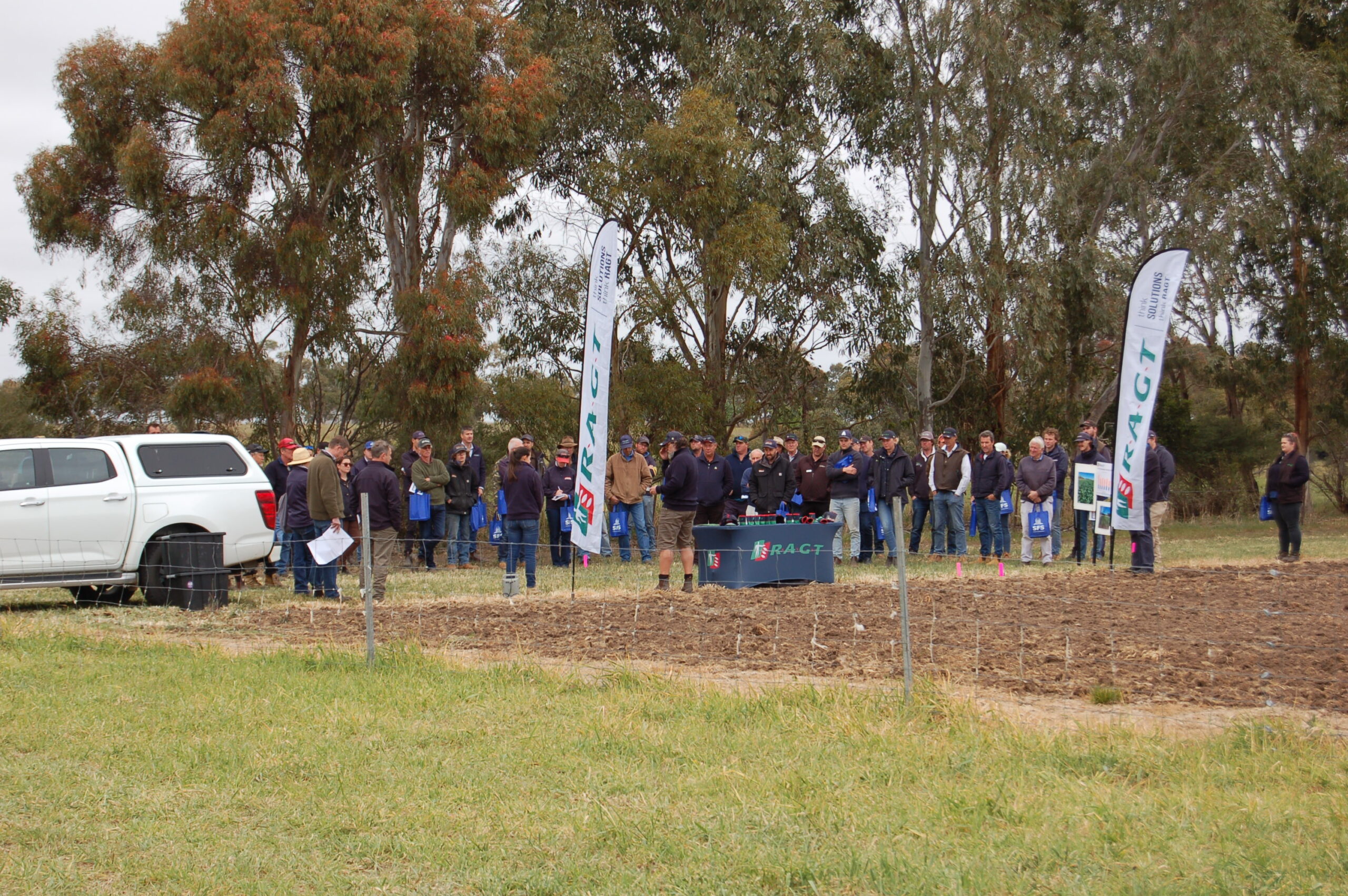
Fantastic Feedbase Focus!
Southern Farming Systems (SFS) held their inaugural ‘Feedbase Focus’ event on the 1st of November at the SFS Rokewood Pasture Trial site. The event themed around ‘managing our pastures from spring through to the autumn break’ was very well attended by producers and agronomists from Southwest Victoria.
Feedbase Focus was a morning with Cam Nicholson, Nicon Rural facilitating the tour of the trial site and discussion with specialist speakers on a range of topics.
Feedbase Focus presentations included:
- Pasture Variety Trials focussing on summer active species and high producing varieties – species include phalaris, tall fescue, perennial and Italian ryegrasses and sub-clover.
- RAGT Fodder Brassica’s and New Sorghum Trial
- Advantage Feeders stock containment
- Soil Constraints
- Sub Clover Management
- Phalaris – Varieties, Grazing management
- Stock management systems & strategies
- eID adoption strategies in practice
- DLF Seeds Fodder Clean Crop Concept
- Swayn & McCabe Claas machinery
One of the many discussions was about a project Southern Farming Systems is partnered with Birchip Cropping Group supported by funding from Meat Livestock Australia to explore producers eID farm practices adoption journeys. As the eID system has been mandatory in Victorian for sheep producers since January of 2017, and will be mandatory for the rest of Australia by January 2025.
The requirement of electronic identification tags was originally implemented to increase traceability of livestock. The ability to trace individual animals through their lifetime allows for timely and specific intervention in the case of suspected disease outbreaks in livestock.
This traceability can be expanded to include farm practices, allowing for stud precision on a commercial scale. Data such as tracking weights, pregnancy scanning, progeny, and fleece tracking, and many more can be accomplished through the eID system and have proved a valuable management tool to many, taking human error out of data tracking.
There are many factors to consider when starting your own eID data management journey as each farm is different and so too are the practices that best suit it.
Things to consider:
- Practice: what husbandry practice/s are you aiming to track with eID technology?
- Brand: there are many brands available that deal in eID compatible technology – investigate what each one offers and how this will suit your business and the husbandry practice you are aiming to track.
- Cost: not just the cost of the technology itself, are there any infrastructure costs associated with set up?
- Learning curve; as with all technology there is a learning curve to implementation, and it may be tempting to go back to old methods, (particularly if other people are waiting on you to get the technology to work), give yourself time to learn how to use the technology.
If you would like to continue or join the discussion we have a Facebook group you can join by following the link https://www.facebook.com/groups/SheepEIDsCoP
Keep an eye out for more pasture trial visits exploring Summer fodder in the New Year!

